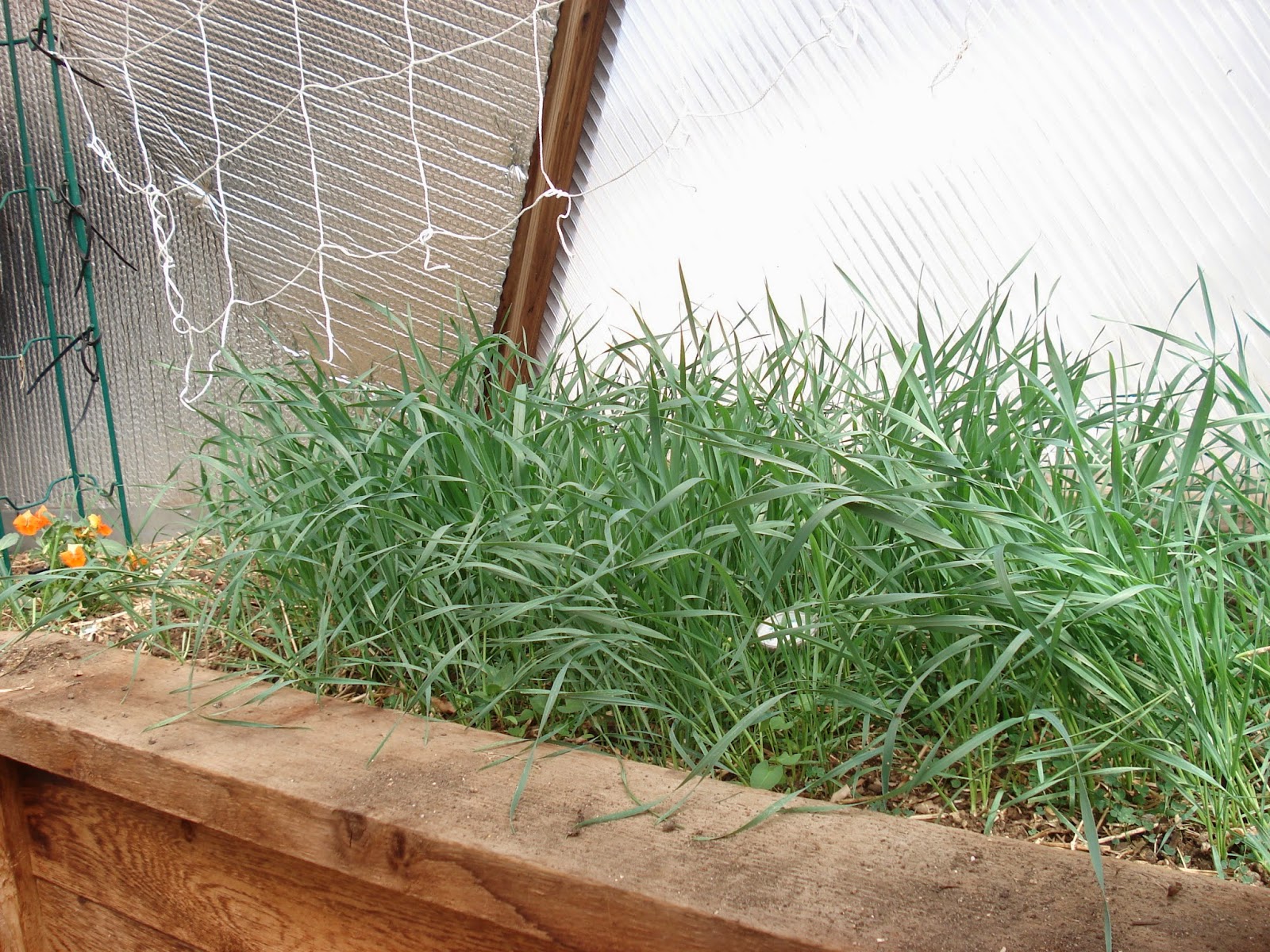 |
| Winter Cover Crop |
This past winter I decided to try growing some cover crops in my
greenhouse. I planted some white clover,
and a few others (I can’t remember). The
photos were taken before I tilled the soil in preparation for planting.
Cover crops are amazing; they provide many positive aspects to
the garden. They can provide erosion
control, fix nitrogen, and build soil quality.
Cover crops are also called “green manure” and are often in the Fabaceae (pea) family.
Increasing soil fertility is one of the primary uses of cover
crops. They can influence a range of
macronutrients and micronutrients; nitrogen has received the most attention
since it is often the limiting nutrient in crop production. Cover crops can also improve soil quality by
increasing organic matter levels when crops are killed and incorporated into
the soil. Plants must be killed before
they go to seed and before the top growth gets too mature.
After plowing under the green compost it is best to wait 2 to 3
weeks before planting vegetables or flowers, as crop decomposition can tie up
soil nitrogen.
At higher altitudes, cover crops can be planted as early as
mid-September, with mid-October being the latest. Depending on your elevation,
you may need to plant earlier to get the plants established before freezing
weather. Do not let crops go to seed, or you will have cover crop in your seed
bed. Many of the crops winter kill
allowing you avoid the waiting period in the early spring.
Buckwheat is a
broadleaf plant that will smother out weeds and other plants. Its flowers also attract beneficial insects.
Clover comes in many
varieties. Clover fixes nitrogen,
attracts beneficials and helps build rich soil.
Clover must be inoculated with a Rhizobium
bacteria for best results.
Rye comes as annual or cereal rye. Annual rye will winter kill allowing you
to skip the waiting period in the spring.
Field Peas fix
nitrogen and are cold tolerant, making them a good fall plant. They will winter kill, allowing an early
spring start.


No comments:
Post a Comment